5 steps to safe tailgating this season
Get your party on and get home safely.
Updated on November 15, 2024
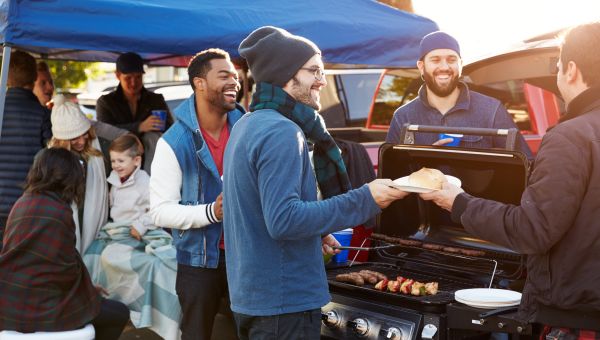
Football season is here! Dedicated tailgaters are hitting stadium parking lots across the country, braving the cold or the heat, tossing around footballs, and enjoying treats from the grill. Before you head out for the big game, just remember to follow a few basic safety tips.
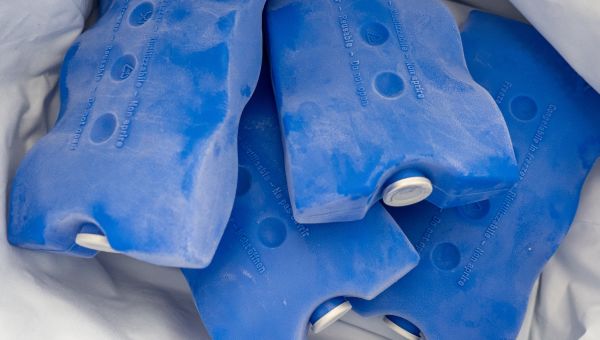
Store food properly
What’s a tailgate without grub? Be sure to get your lunch or dinner from the fridge, to the game, and to the grill safely by keeping your cooler at 40°F or below. Wrap meats so the juices don’t drip onto anything else, and avoid having perishable foods out of the cooler longer than two hours—or one… Show More
What’s a tailgate without grub? Be sure to get your lunch or dinner from the fridge, to the game, and to the grill safely by keeping your cooler at 40°F or below. Wrap meats so the juices don’t drip onto anything else, and avoid having perishable foods out of the cooler longer than two hours—or one hour if the temperature is over 90°F.
The same goes for leftovers: get them back in the cooler within two hours—or one hour if it’s hot—and eat them within four days.
Show Less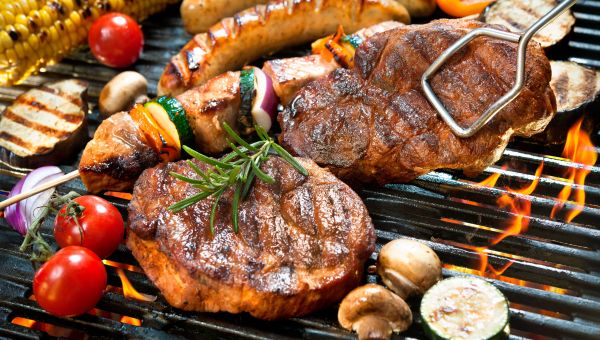
Cook safely
You need a full stomach to support your team; what you don’t need is to get ill because your food wasn’t cooked well enough. Undercooked meats can harbor salmonella, E. coli, listeria, and a host of other bacteria. Cook steaks to at least 145°F, ground meat like burgers to at least… Show More
You need a full stomach to support your team; what you don’t need is to get ill because your food wasn’t cooked well enough. Undercooked meats can harbor salmonella, E. coli, listeria, and a host of other bacteria. Cook steaks to at least 145°F, ground meat like burgers to at least 160°F, and hot dogs and chicken to 165°F. If you’re setting up the grill, remember to carry an instant-read meat thermometer to check those temperatures.
Show Less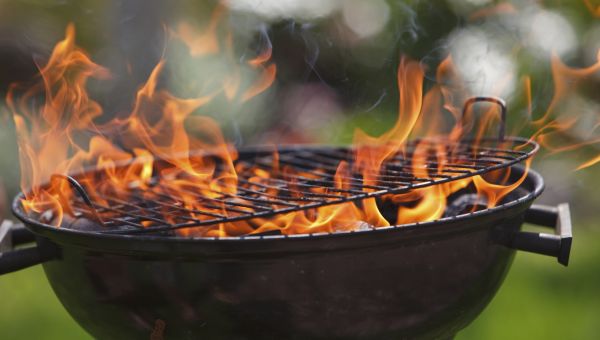
Be cautious around the grill
You’ve stored your food properly and grilled it to the perfect (safe) temperature. Nothing else to worry about, right? Wrong. An estimated 22,155 people went to emergency rooms each year between 2017 and 2021 as a result of injuries involving grills, according to the National Fire Protection… Show More
You’ve stored your food properly and grilled it to the perfect (safe) temperature. Nothing else to worry about, right? Wrong. An estimated 22,155 people went to emergency rooms each year between 2017 and 2021 as a result of injuries involving grills, according to the National Fire Protection Association.
Burns are a danger with both gas and charcoal grills, and charcoal grills come with the added peril of carbon monoxide. Make sure your grilling area has proper ventilation and check for leaks in gas grill hoses.
And it’s not just the grill that can hurt you—a 2016 study published in Otolaryngology–Head and Neck Surgery estimated that there are nearly 1,700 emergency room visits each year as a result of wire grill brushes, most of them a result of people accidentally eating the bristles.
Show Less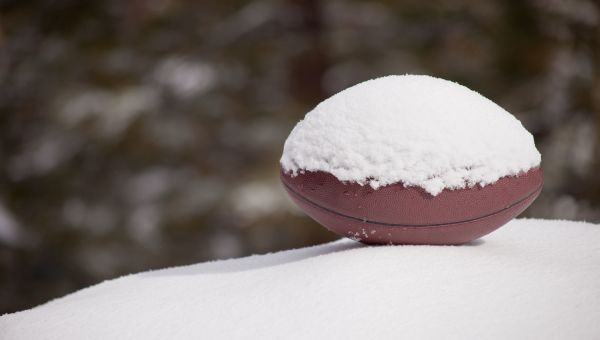
Keep tabs on the weather
Preseason professional football starts in August and the championship game doesn’t arrive till February, so football season runs from the dog days of summer to the dead of winter. That means you need to be prepared for any weather.
Dress appropriately and don’t drink too much alcohol, either in hot,… Show More
Preseason professional football starts in August and the championship game doesn’t arrive till February, so football season runs from the dog days of summer to the dead of winter. That means you need to be prepared for any weather.
Dress appropriately and don’t drink too much alcohol, either in hot, mild, or cold temperatures. It’ll raise your chances of dehydration when it’s hot, and lower your core temperature and increase the risk of hypothermia when it’s cold.
In the heat, learn to recognize the signs of heat exhaustion. In the cold, wear gloves, a hat and two pairs of moisture-wicking socks to help prevent frostbite. In any kind of weather, don't forget to wear a sunscreen with an SPF of 30 or higher and reapply it every two hours. The sun's UV rays are powerful, meaning you can get a sunburn even on cold, cloudy days.
Show Less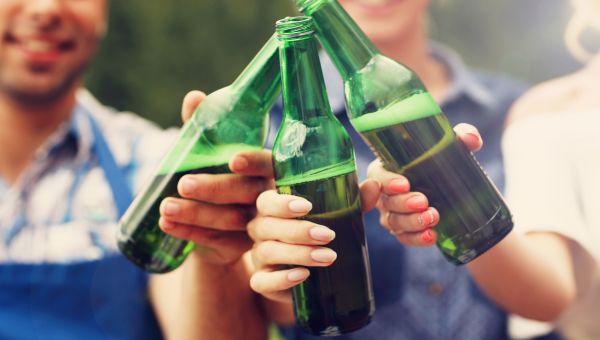
Be moderate with alcohol
For many people, drinking a beer or two is an essential part of the tailgating experience. But alcohol is a factor in more than 178,000 deaths each year, according to the National Institute on Alcohol Abuse and Alcoholism.
One 2011 study looked at attendees of 13 baseball games and 3 football games.… Show More
For many people, drinking a beer or two is an essential part of the tailgating experience. But alcohol is a factor in more than 178,000 deaths each year, according to the National Institute on Alcohol Abuse and Alcoholism.
One 2011 study looked at attendees of 13 baseball games and 3 football games. It found that those who drank at tailgate parties were 14 times more likely to have blood alcohol content levels over the legal driving limit than people who hadn’t been tailgating. So, if you’re going to have alcohol at your tailgate, try to limit your intake to the recommended maximum of two drinks per day for men, one drink for women. And, just in case, make sure there are sober drivers to get everyone home safely.
Show Less
National Fire Protection Association. Grilling. Accessed September 21, 2023.
Baugh TP, Hadley JB, Chang CW. Epidemiology of Wire-Bristle Grill Brush Injury in the United States, 2002-2014. Otolaryngol Head Neck Surg. 2016;154(4):645-649.
American Academy of Dermatology Association. How to Apply Sunscreen. Updated May 2, 2024.
National Institute on Alcohol Abuse and Alcoholism. Alcohol-Related Emergencies and Deaths in the United States. Updated: 2023.
Erickson DJ, Toomey TL, Lenk KM, Kilian GR, Fabian LE. Can we assess blood alcohol levels of attendees leaving professional sporting events?. Alcohol Clin Exp Res. 2011;35(4):689-694.
National Institute on Alcohol Abuse and Alcoholism. Alcohol-Related Emergencies and Deaths in the United States. Updated 2024.
More On


video

article

slideshow


video


video
